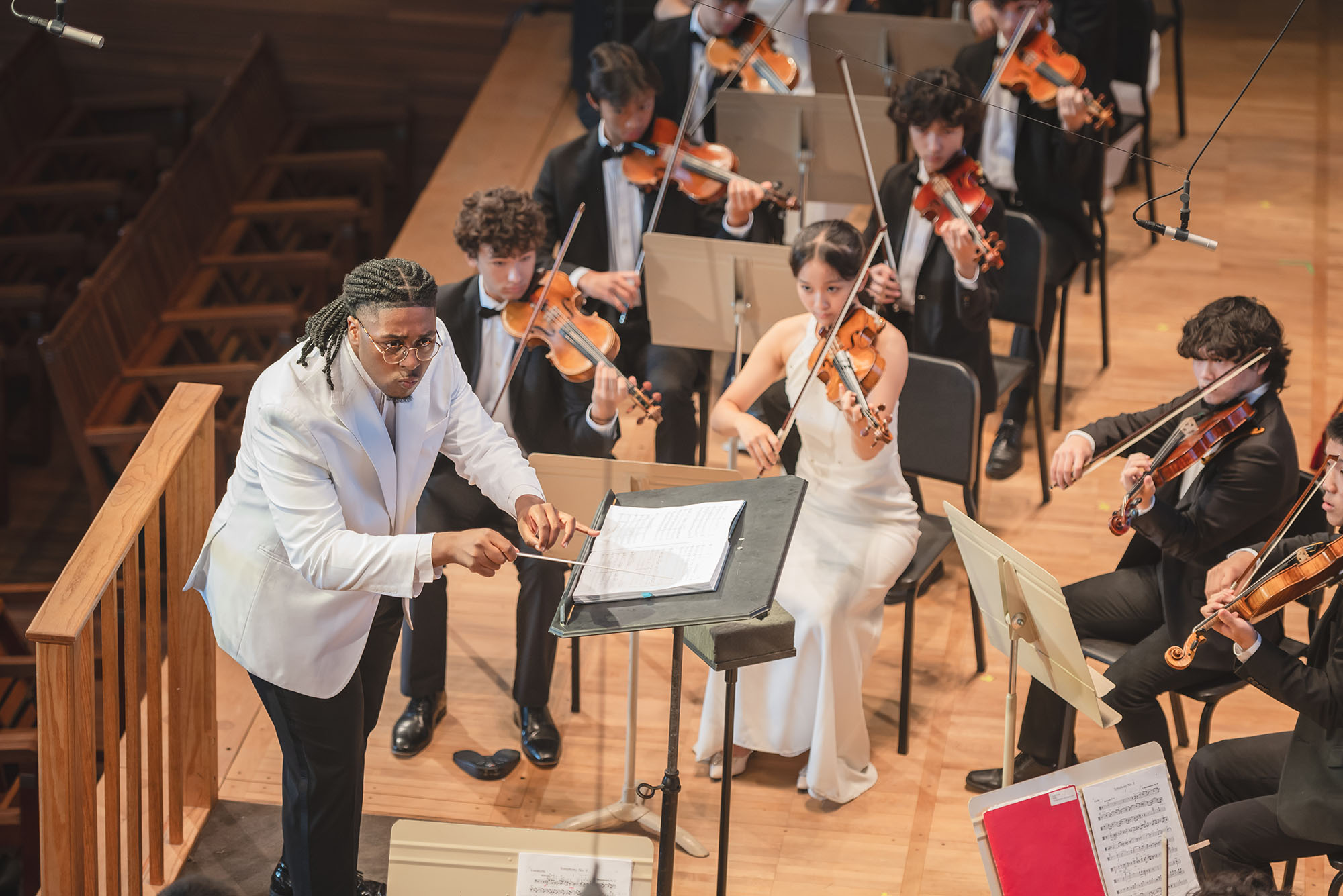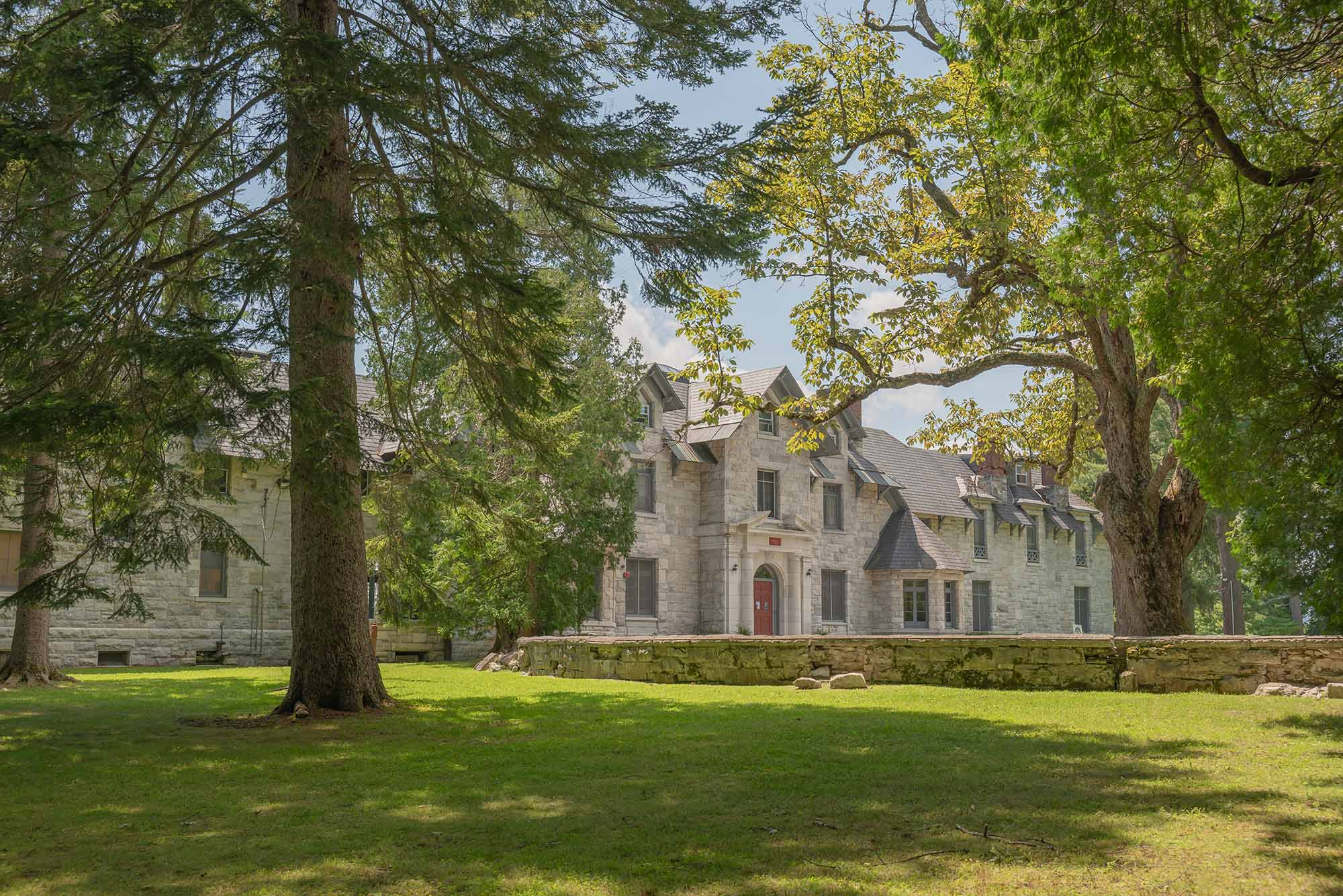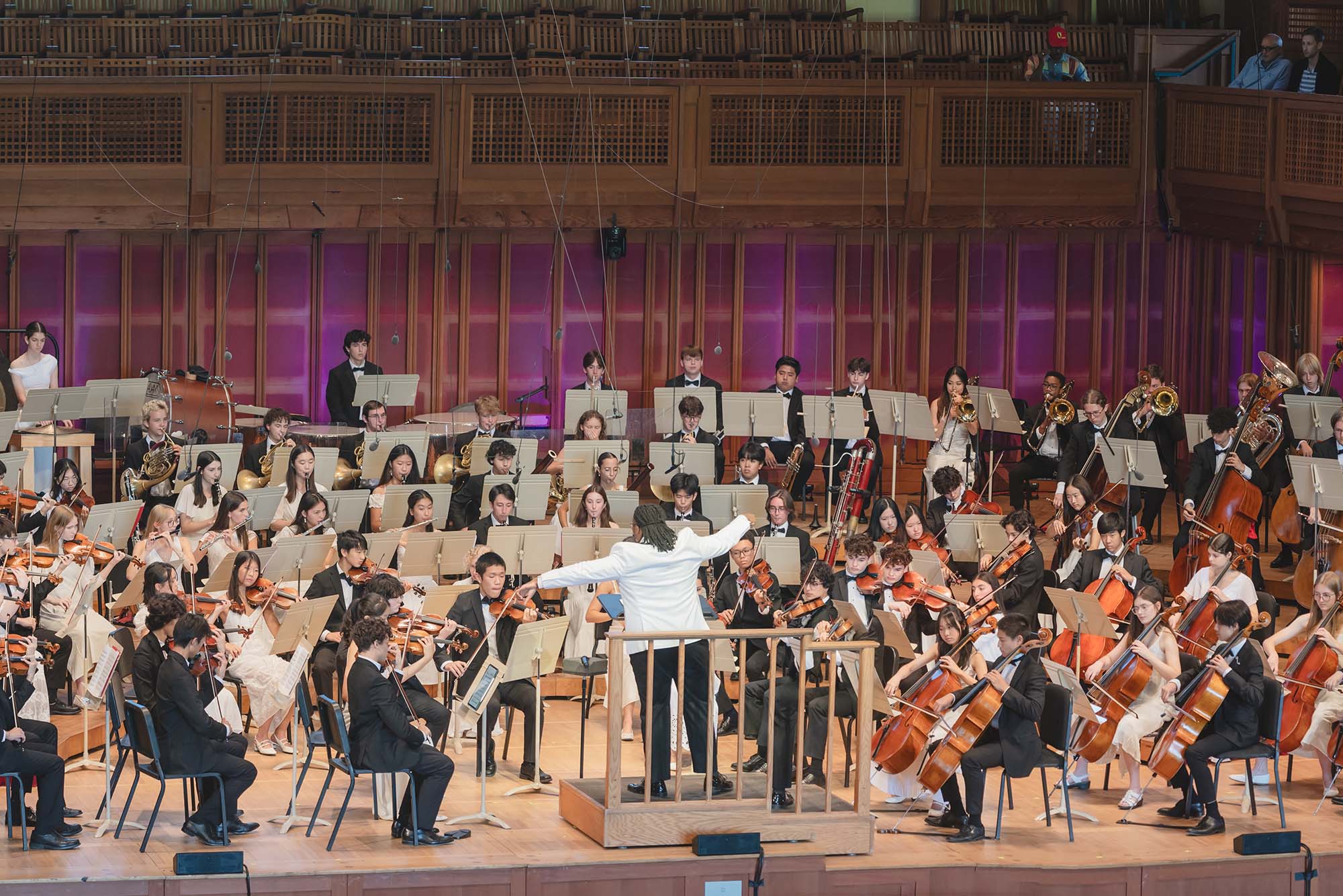Boston University Tanglewood Institute to Celebrate 60th Anniversary
BUTI director Nicole Wendl on the impacts of the institute's long history, what lies ahead
Students performing during a summer concert at the BU Tanglewood Institute’s auditorium. Video courtesy of BU Tanglewood Institute
Boston University Tanglewood Institute to Celebrate 60th Anniversary
BUTI director Nicole Wendl on the impacts of the institute’s long history, what lies ahead
Two hours west of Boston University’s Charles River Campus sits another BU building, where promising young musicians can pursue their artistic dreams. Instead of learning and performing in the Boston bustle, students learn among the picturesque Berkshire mountains in Lenox, Mass., home to the BU Tanglewood Institute (BUTI).
In 2026, BUTI will celebrate 60 years of elite classical music education.
Born of a collaboration between BU’s College of Fine Arts and the Boston Symphony Orchestra in 1965, the Tanglewood Institute is a summer music program for young musicians, meant to act as a stepping stone to the celebrated Tanglewood Music Center—BSO’s graduate-age summer music academy.
“This amazing program is for high school-age students who are at the top of their game in classical music,” says Nicole Wendl, BUTI’s executive director since 2022.

From its start, BUTI has offered educational programming for all orchestral and ensemble instruments, from the harp to composition and voice. Students ages 14 to 20 may apply for a two-week summer workshop; students 14 to 19 are eligible for an eight-week summer course. Younger students can apply, but those in the recommended age range receive preferential admission. They live on the Berkshires campus and learn from a group of BUTI alumni, music teachers, and working professionals.
BU Today spoke with Wendl about the institute, its future, and what’s in store for the 60th anniversary.
Q&A
with Nicole Wendl
BU Today: What’s the primary purpose of the Tanglewood Institute?
Wendl: During the summer, we offer 25 educational programs. Students are there to take the next steps in their classical music education. Everything you would get in a core conservatory curriculum, you’re getting here. Students also get transferable college credit while they’re here, so for each week they’re in residence, they get one college credit. Most of our students go on to the major conservatories, like Juilliard and Colburn. A lot return as graduate students to BU, and our alumni are in every major symphony in the United States.
This is a life-changing program. It is a place where students come together from all over the world, learn about one another, and learn about other cultures in a supportive and intensive environment. Our culture is about growth through community, and that mindset really changes people.
People who graduate from BUTI go into all kinds of fields, and they bring that perspective of BU culture and the tradition of excellence with them. The point of BUTI is to be the pebble in the pond that can make a difference in the world.

BU Today: For those unfamiliar with BUTI, what are some key facts to keep in mind?
Number one is that BUTI is a BU program; it is not a program of the BSO. We do different things, but we also have a wonderfully symbiotic relationship.
We talk about the Tanglewood continuum a lot, where students go from our program at BUTI at the high school level, up to the Tanglewood Music Center at the college graduate level, into the BSO, to maybe soloing on stage. There’s a real trajectory of what you can see your life like when you come to BUTI.
Also, we’re not only for people in New England or the Northeast. This is truly an international program, and we welcome people from all over the country and the world. And—we’re not located in Boston, even though everything else BU typically is.
BU Today: What makes the 60th anniversary special?
BUTI’s 60th anniversary coincides with America’s 250th anniversary, which is a unique opportunity to demonstrate the importance of New England, and specifically the Berkshires, as a center of American art. This is where growth begins, this is where we plant those seeds, and from that growth is an outcome of what we consider American art. It’s also a great opportunity to get more people involved and aware of this incredible gem that BU has.
We’re at a really exciting inflection point. We have a president at BU [Melissa Gilliam] who believes in this program and an executive director who is willing to push hard for the growth of the program. The 60th anniversary is a jumping-off point of where we can go in terms of improvement in our facilities and building the endowment, so that any student who gets in, but maybe can’t afford it, can certainly come, no questions asked. It celebrates the growth of the community and is space-making for everybody who has been touched by the program.

BU Today: How will BUTI celebrate its 60th?
There will be a four-day celebration. It will start with a benefit concert by current students on August 1, 2026. That’s a fundraising celebration for BUTI and an investment in its future for another 60 years. It will be at BUTI’s campus, on our newly redone and resurfaced porch.
On August 4, we’ll have a side-by-side concert with our current students and alumni. This is specifically for BUTI alumni, followed by a postconcert event. It will bring together alumni from across generations, across decades, both in the field and not in the field. I’m excited to see the joy it brings and what kind of projects spark.
BU Today: What does the future of BUTI look like and what are the institute’s goals moving forward?
The future is that this is a world-class program with a world-class facility that is heavily subsidized, if not free to attend. That will require endowment funds for scholarships, University support for revitalization of the campus, as well as donor support. It’s really important to me to see a student represented from all 50 states this year, and I want that to continue moving forward.
The goal is that the program continues to be one of the top programs in the country and that we are a desirable location, not just because of the BSO and how great our program is, but because of how awesome our facility is and that it is truly accessible to anyone talented enough to be there.